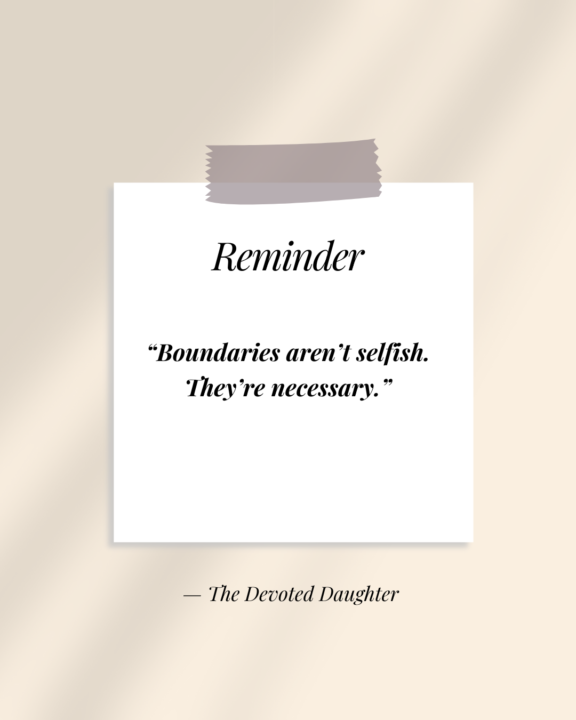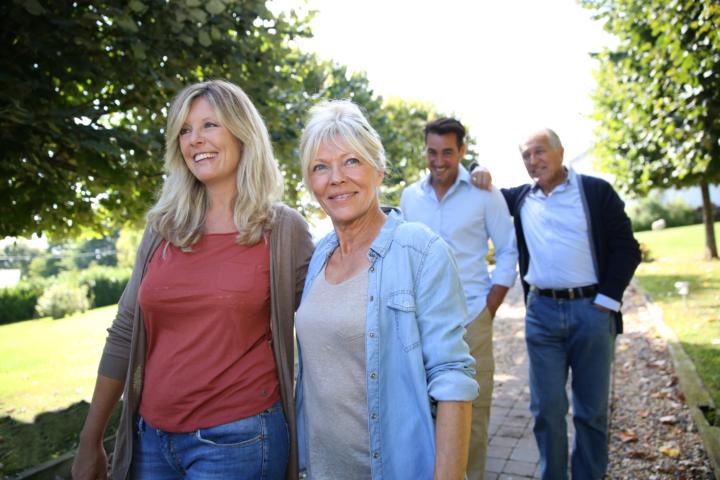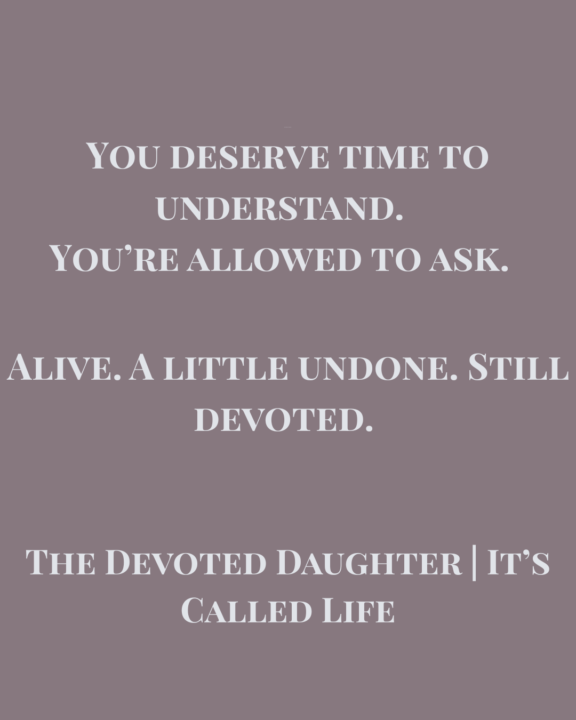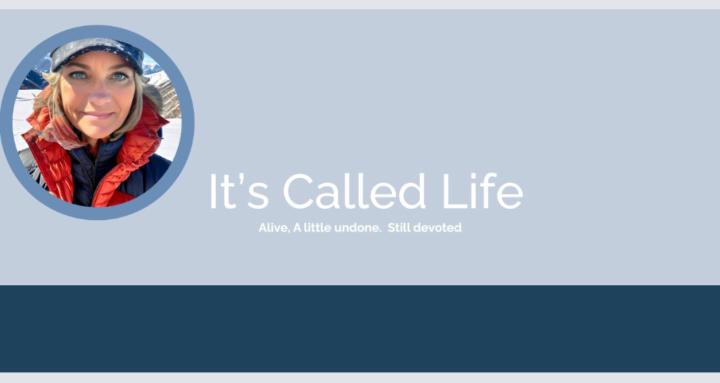
Write something
How to Break Up With Caregiver Guilt
"But she's all alone. There's no one else." I've heard this so many times—from families, and myself. It's one of the most brutal truths about caregiving. Because you want to help.Because you care. But you're only human. What starts as a few errands, meals, or check-ins quickly becomes being the caregiver because it feels easier to say yes than to have the complicated conversation about limits. Because someone has to. But boundaries aren't selfish. They're necessary. Because caregiving without boundaries leads to burnout, resentment, and guilt that no one deserves to carry. What can help when you're feeling the weight of it all? ✅ Name what you're doing—it's caregiving .✅ Be honest about your limits .✅ Ask for help creatively—friends, neighbors, church, senior services, paid help .✅ Call the primary care doctor. Ask about resources .✅ Talk to the social worker on staff. They often know options you don't .✅ Adjust as needs change. ✅ Let go of the idea that you have to do it all alone. You're not failing because you need help. You're not selfish for protecting your well-being. You're not broken because this is hard.💕 You're becoming. 👇 Have you struggled with setting boundaries in caregiving? Share below if you'd like. — The Devoted Daughter

10 Things No One Told Me About Caregiving (Until I Lived It)
10 Things No One Told Me About Caregiving (Until I Lived It) Hi, I’m Kelli. If you’re reading this, there’s a good chance you’ve found yourself in the unexpected role of caregiver. Maybe for a parent. Maybe for a spouse. Maybe even for a neighbor. However, you got here—this is for you. - 1. You don’t know you’re a caregiver… until you’re neck deep. - 2. It starts small, and then suddenly, it’s your whole world. - 3. There’s no finish line—only moments of pause. - 4. It’s lonely, even when surrounded by people. - 5. The grief starts early, long before anyone else sees it. - 6. No one claps for the little wins, but they matter most. - 7. You become the historian, the advocate, and the nurse… overnight. - 8. You will doubt yourself. Constantly. - 9. Your life keeps going, but nothing feels the same. - 10. You are not alone—even when it feels like it. - A Note from Kelli If no one has told you lately, what you’re doing matters. Caregiving isn’t just tasks and timelines. It’s emotional. It’s spiritual. It’s hard. But it’s also holy work. And you deserve to be seen, supported, and surrounded by people who truly understand you. That’s why I created ‘It’s Called Life’—a private community for women caregiving, grieving, and growing through this chapter of life. You’re not broken. You’re becoming. Kelli Alive, A bit undone. Still devoted

Hospital Discharge Conversations No One Prepares You For
You’re the one they expect to hold it all together—the one reading discharge paperwork through tears or exhaustion. The one who has to make decisions, you don’t even feel ready for. Hospital discharge isn’t kind. It’s rushed. Confusing. Filled with medical jargon. If you’ve ever stood in that hallway nodding while thinking “Wait—I don’t understand”—I see you. You’re not failing. You’re not behind. You’re trying to protect someone you love. This is caregiving. This is becoming. It’s heavy. It’s complicated. It changes you. Why It Feels So Hard. Discharge planning is often fast and impersonal. Staff are busy. Beds need to be free. You might get a stack of papers and a 5-minute explanation. You deserve better. You deserve time to ask: - What does this mean? - Why are you recommending this? - What other options exist? - Key Questions to Ask Before You Sign Anything: You’re Allowed to Slow It Down. You’re allowed to understand. Here are questions you can use: - What is the recommended level of care after discharge? - What is “skilled rehab,” and how is it different from a nursing home? - Why do you think this is the best choice? - What will insurance pay for? What won’t it? - What are the costs? - Can you explain the paperwork in simple terms? - Who do I call if I have questions after we leave? - Are there any alternatives? These aren’t pushy. They’re your right. You’re Planning Care—Not Just Signing Papers. You’re not just checking a box. You’re trying to do this well for someone you love—even if you’re falling apart inside. You shouldn’t have to know everything. But you can ask. Take a moment to breathe. You can slow it down. You’re Not Alone. If you’re here, reading this, it means you care. It means you’re the devoted one—even if you feel undone. This space is for you. A place to be real. To be raw. To feel held. To find help without judgment. Alive. A little undone. Still devoted. It’s Called Life. If you have questions about discharge planning, drop them below. Share your experience—what worked, what didn’t. Let’s help each other slow it down.
1
0

Why Community Matters-And Why We're Here Together.
I wanted to share this article with you because it's proof of something many of us have felt in our bones: Caregiving—including caring for family and people with disabilities—remains undervalued and unpaid. The UN is finally addressing the issue on a global stage. But for us, this isn't just policy. It's our lives. We didn't plan for caregiving. It started small. And now it's hours each week—managing medications, appointments, emotions, and challenging conversations. Often without thanks.Often without help. Often feeling very alone. Loneliness is something caregivers often don't discuss enough. But it's real. It's a feeling like no one understands why you're always tired. It's grieving the changes in someone you love while pretending you're fine. It's losing touch with your own identity. That's why this community exists. Not to fix everything. But to make sure no one has to sit in that loneliness alone. When the world ignores unpaid caregiving, it becomes invisible work. But here? We see it. We name it. We hold space for it. Because caregiving isn't just a set of tasks, it's an emotional load. It's grief. It's love, it's life. If you're here, it means you understand that. Or you want to understand it better. Or you're just too tired to keep doing it alone. You're welcome here. You're seen here. You're not alone here. 💕Kelli 📎 UN Article Link: https://news.un.org/en/story/2025/06/1165101
1
0
1-4 of 4

skool.com/itscalledlife
#1 Support for anyone navigating caregiving, grief & identity. You are not broken. You are not alone. This is your space.
Powered by
